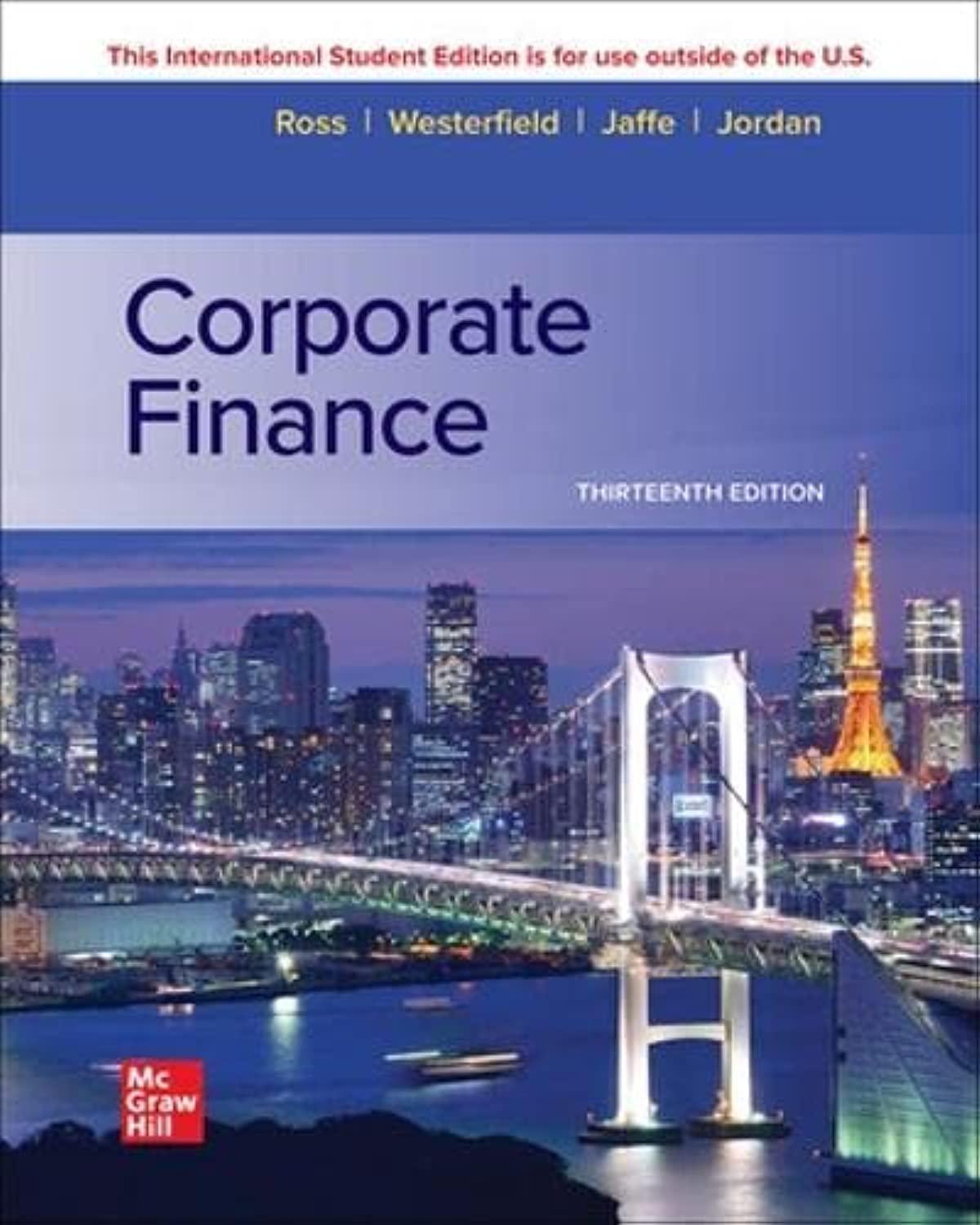The stock price of RW Company is $20. Suppose this company can issue subordinated debentures at 10
Question:
The stock price of RW Company is $20. Suppose this company can issue subordinated debentures at 10 percent. It also can issue convertible bonds at 6 percent with a conversion value of $800. The conversion value means that the holders can convert a convertible bond into 40 (= $800 / $20) shares of common stock.
A company treasurer who believes in free lunches might argue that convertible bonds should be issued because they represent a cheaper source of financing than both subordinated bonds and common stock. The treasurer will point out that if the company does poorly and the price does not rise above $20, the convertible bondholders will not convert the bonds into common stock. In this case the company will have obtained debt financing at below-market rates by attaching worthless equity kickers. On the other hand, if the firm does well and the price of its common stock rises to $25 or above, convertible holders will convert. The company will issue 40 shares. The company will receive a bond with a face value of $1,000 in exchange for issuing 40 shares of common stock, implying a conversion price of $25. The company will have issued common stock at $25 per share, or 25 percent above the $20 common stock price prevailing when the convertible bonds were issued. This enables it to lower its cost of equity capital. The treasurer happily points out, regardless of whether the company does well or poorly, convertible bonds are the cheapest form of financing.
Although this argument may sound quite plausible at first, there is a flaw. The treasurer is comparing convertible financing with straight debt when the stock subsequently falls. However, the treasurer compares convertible financing with common stock when the stock subsequently rises. This is an unfair mixing of comparisons. By contrast, our analysis in Table 24.2 was fair because we examined both stock increases and decreases when comparing a convertible with each alternative instrument. We found that no single alternative dominated convertible bonds in both up and down markets.
Step by Step Answer:

Corporate Finance
ISBN: 9781265533199
13th International Edition
Authors: Stephen Ross, Randolph Westerfield, Jeffrey Jaffe





